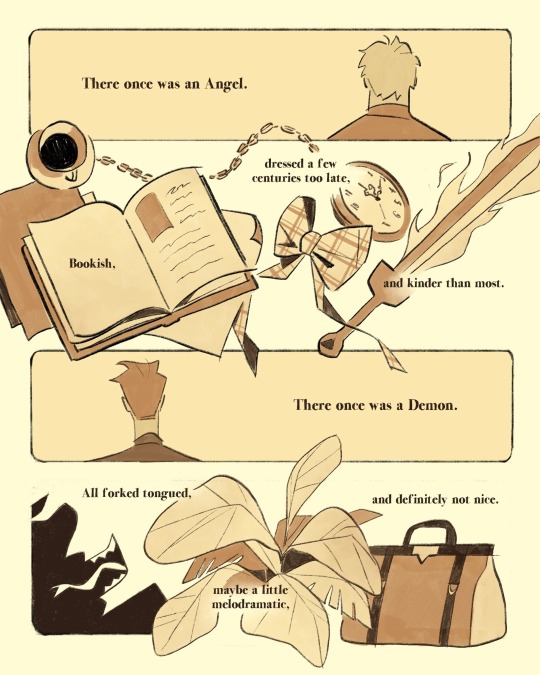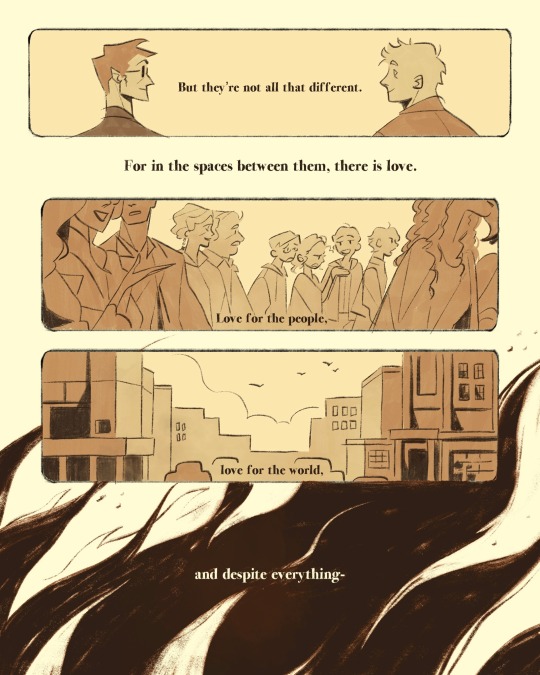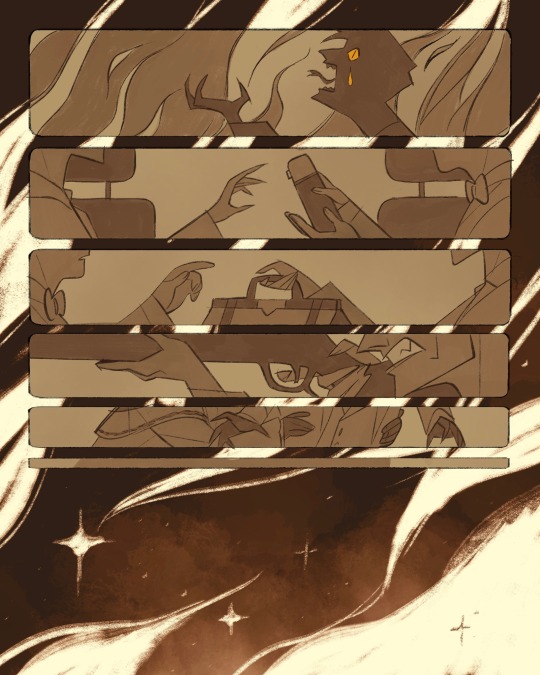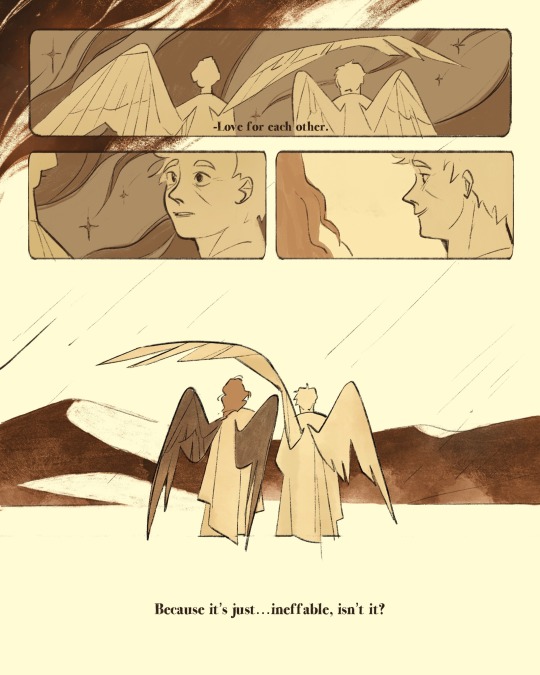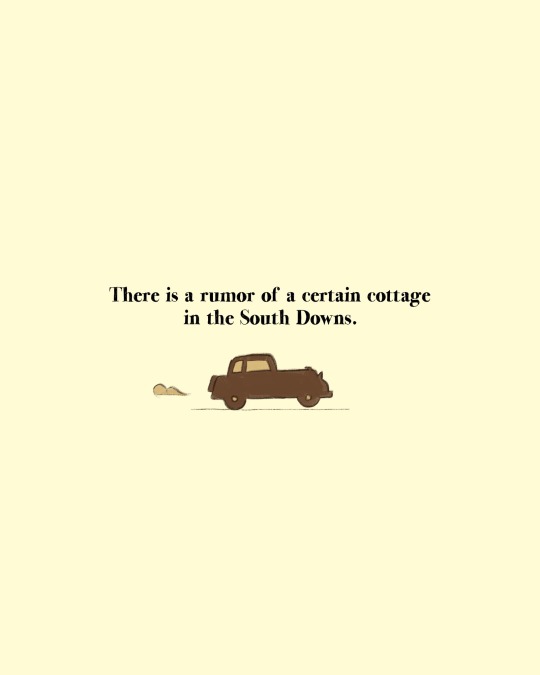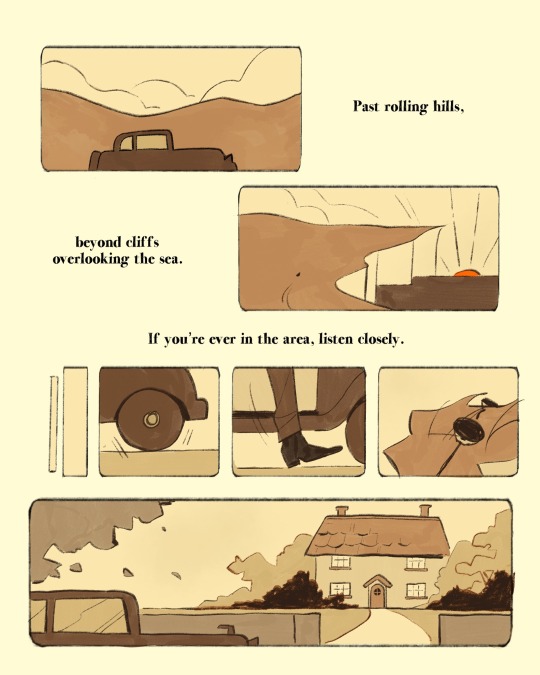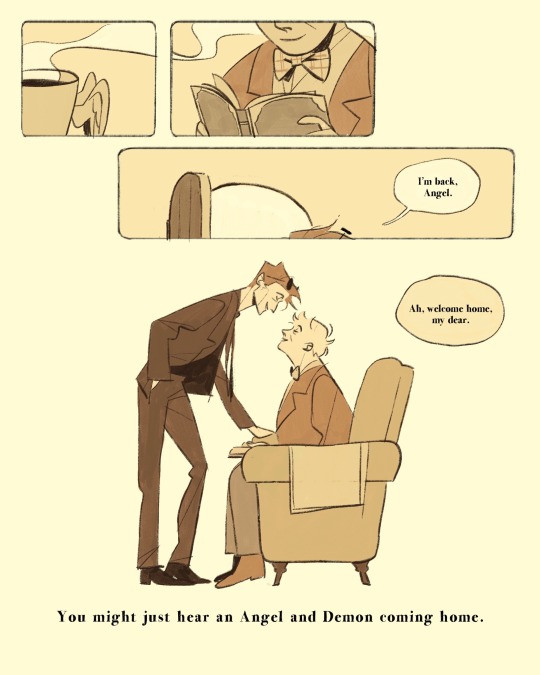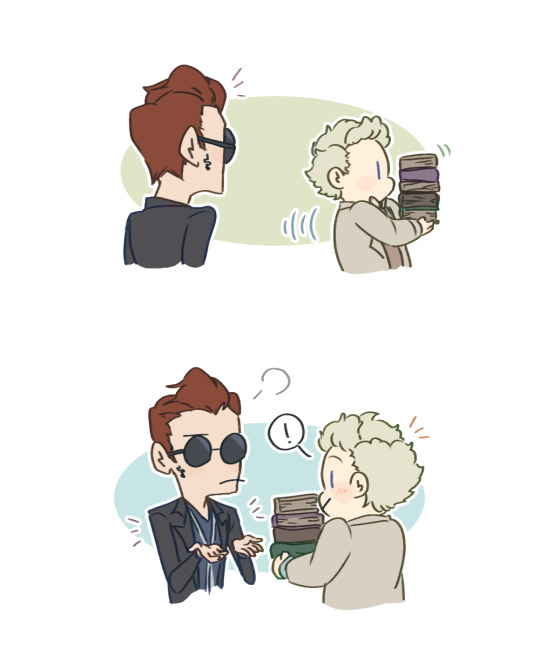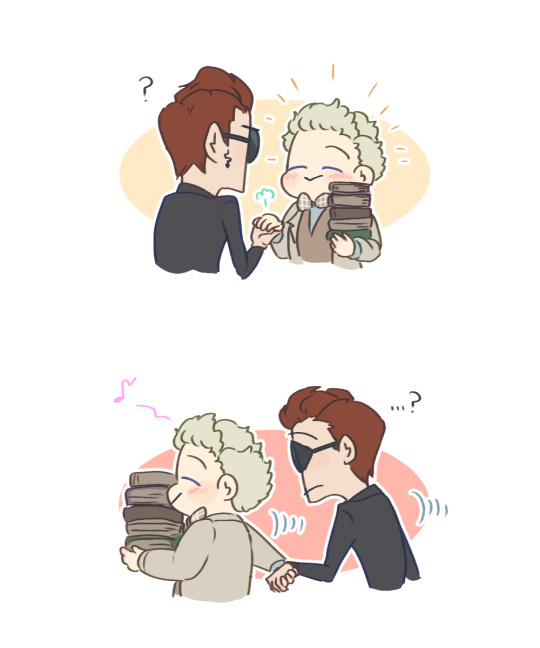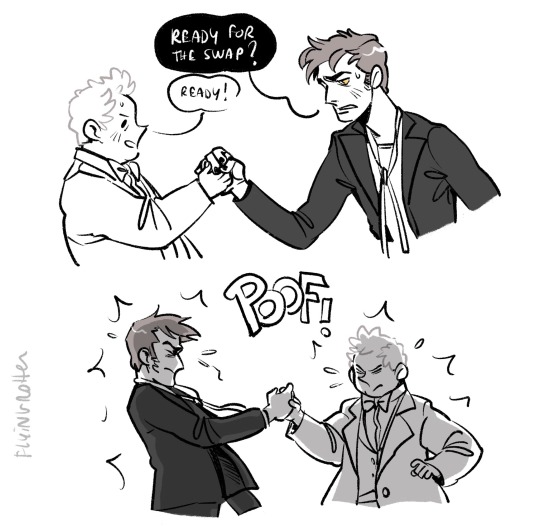Text
This is so beautiful, I want to scream

It was hard to draw the scales.
(2021)
5K notes
·
View notes
Text
This is so cool

You know what to do, do it with style.
5K notes
·
View notes
Text
Portraits




I forgot to post this here whoops.
Did some sketch requests on Instagram and someone asked for "Aziracrow drawing portraits of each other". So I, naturally, slipped in a little reference there.
There are many other requests I drew, but I want to fully coloured them, so I'll post them when they are!
I like to think that Crowley has at least some art skills he's gathered throughout the millennia. Not at Aziraphale's level, of course, but it's something.
4K notes
·
View notes
Text
~ The Very Last Supper of the Rest of Their Lives ~
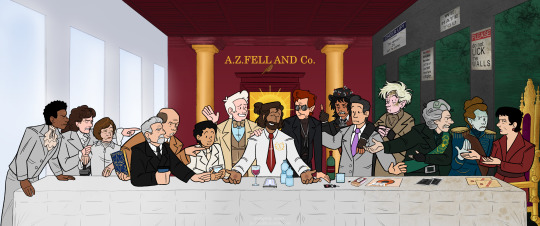
CLOSE-UPS!
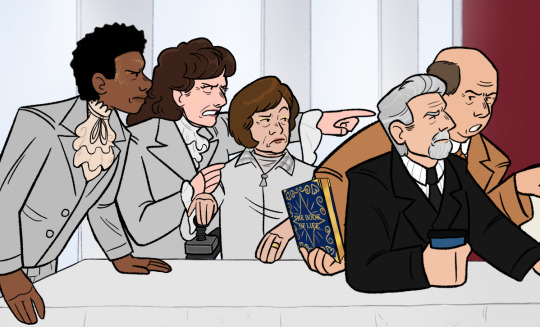

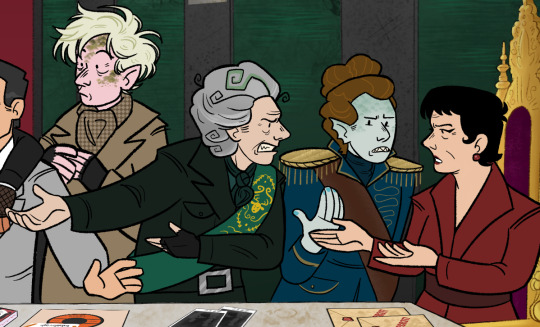
8K notes
·
View notes
Text
There were some discussions about why Crowley stands so still in this shot.

It’s just dawned on me: he is on his own from now on.
There is noone to circle protecting, noone to chase across the street. Everything is static (and quo-ey). And sad.
722 notes
·
View notes
Text
Something I’ve noticed, throughout history Aziraphale changes his outfits just as much as Crowley.
I mean, at first he’s dressed like “An Angel”. This takes place during the periods when he is just observing Earth as an Angel of heaven.
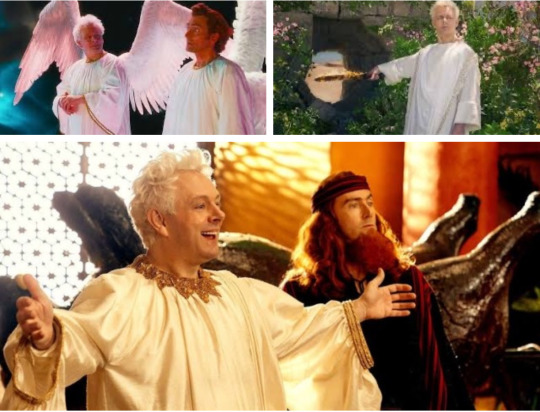
Then once he’s “Gone Native” and is hanging out on Earth on a more permanent basis, he dresses to keep up with style and the times, and most importantly to blend in.
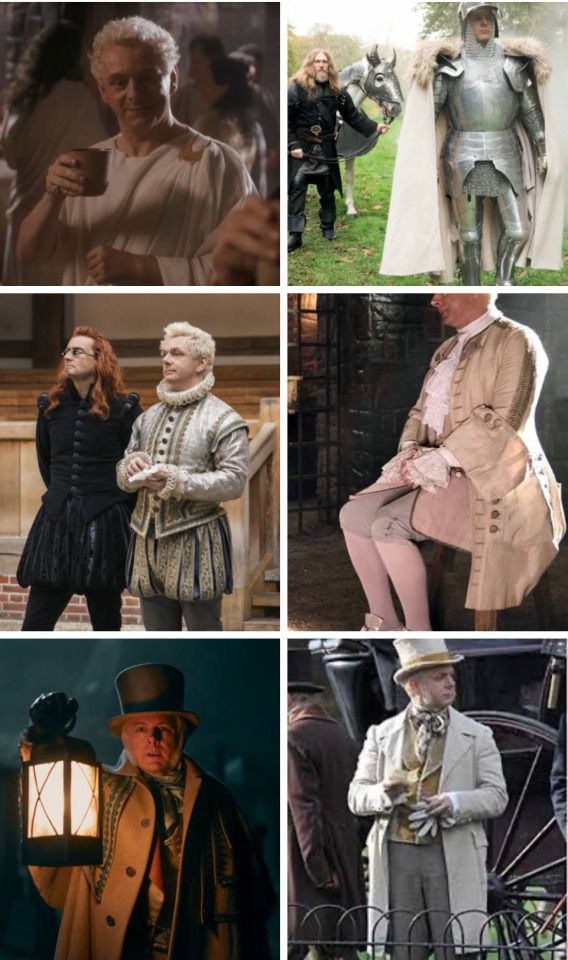
Then we get to 1941 and suddenly his outfit is static and unchanging. For 80 years he remains in the same outfit (and yes for this example I’m not including Brother Francis or Warlock’s birthday party because those were disguises).
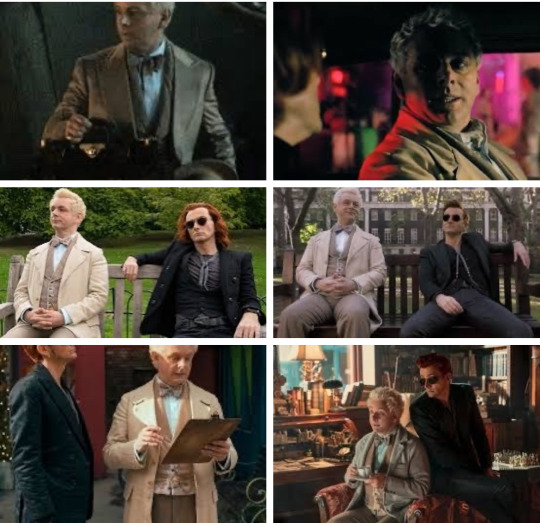
He even laments to Crowley about his jacket being ruined when it was hit by a paintball.
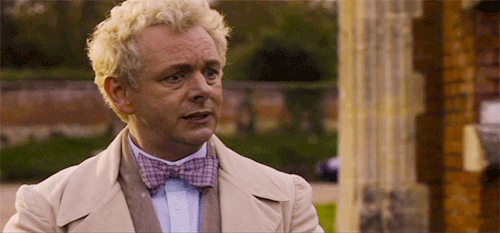
And then is so happy when he fixes it.
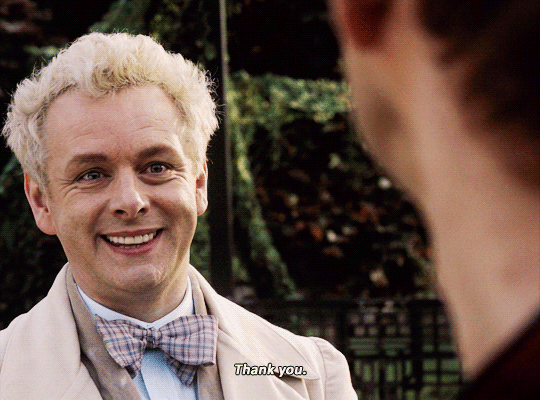
So why is this? Why does he insist on wearing the same thing? For 80 years? Well after fashion has moved on multiple times. What’s so special and significant about this outfit exactly? Why does he love it so much?
It’s almost like perhaps something happened in 1941 that Aziraphale is trying to preserve. Or maybe, to recapture. Something to remind him of that night. GEE, I WONDER WHAT THAT COULD BE?!
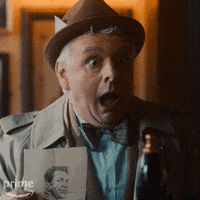
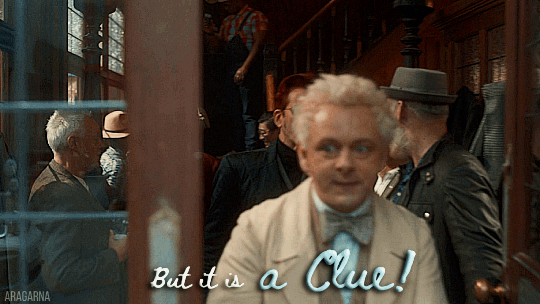
I’ll see myself out.
2K notes
·
View notes
Text
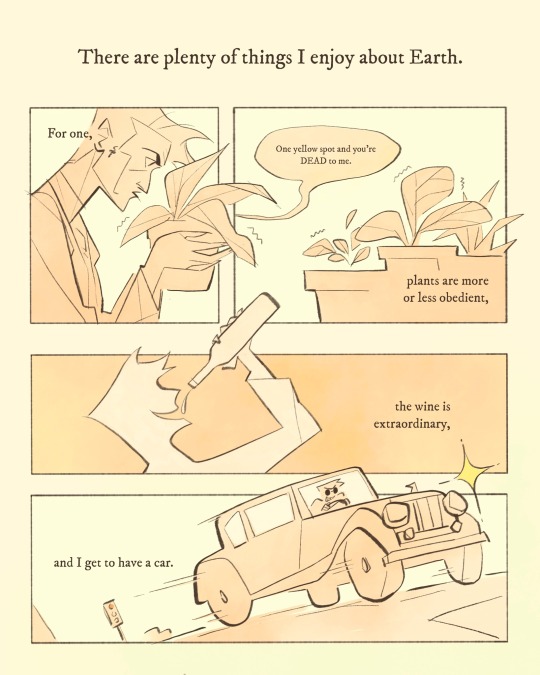
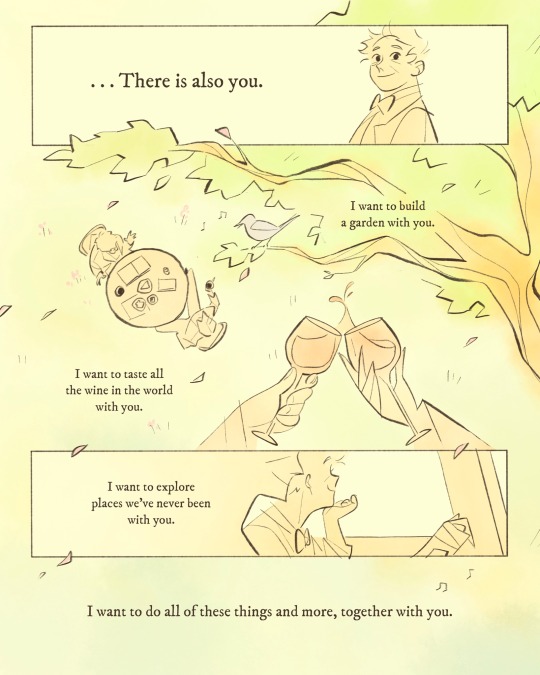

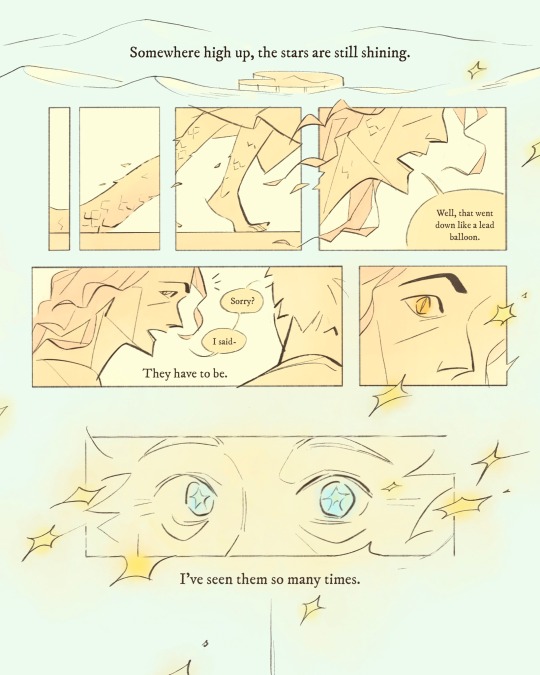
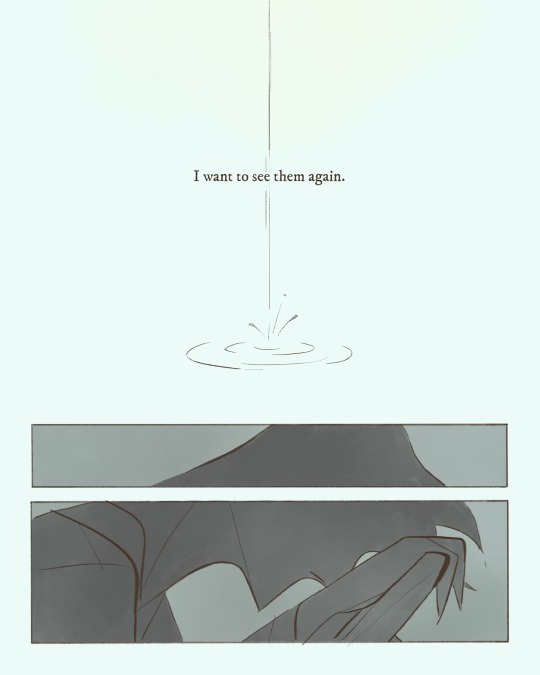
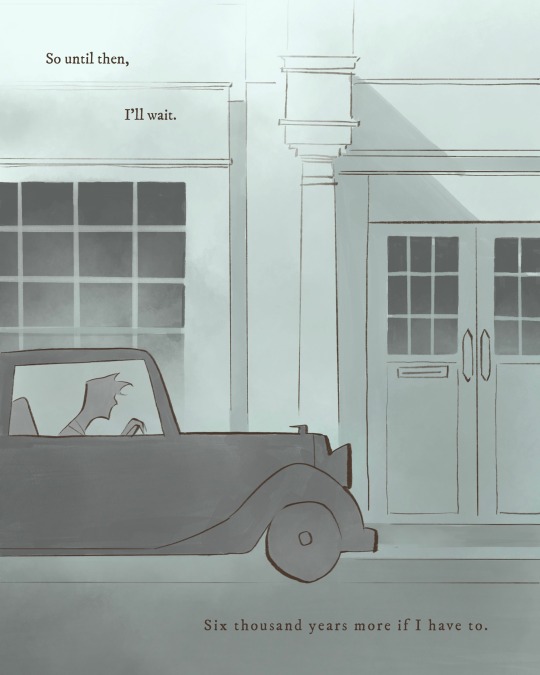
in which crowley tries to convince himself that all is not yet lost, because underneath it all, he is an optimist…
42K notes
·
View notes
Text
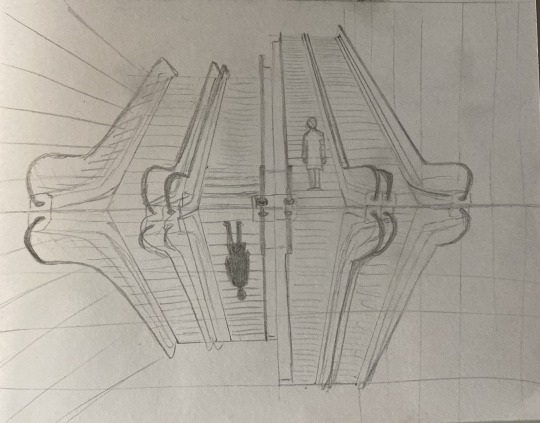
S1E1 scene 12
I don’t have a lot of time rn so just a sketch
#good omens#good omens fanart#1 scene - 1 frame#good omens drawing#drawing#aziraphale x crowley#crowley#aziraphale
100 notes
·
View notes
Text
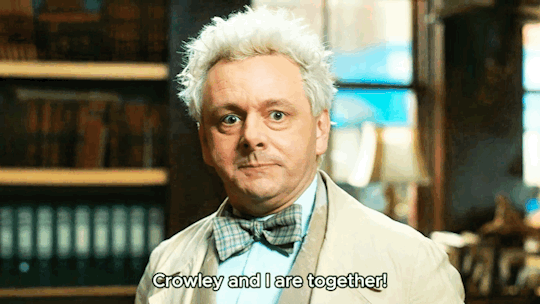
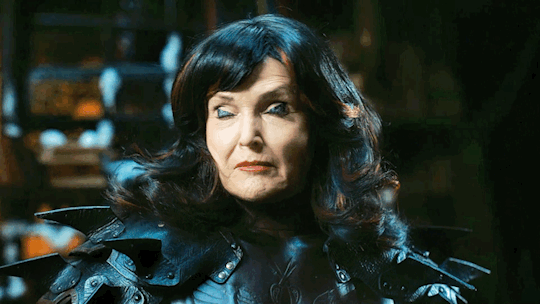
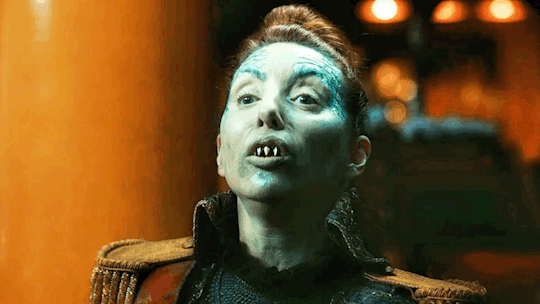
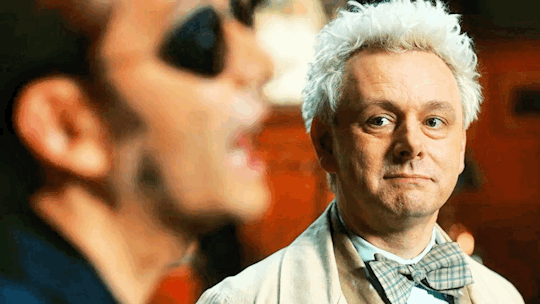
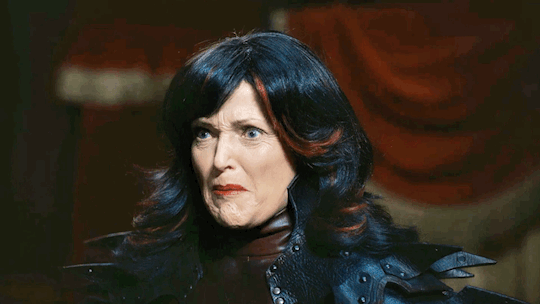
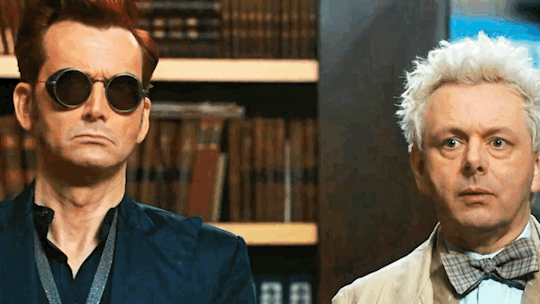
I'd love to know too...
Incorrect Good Omens Quotes Masterpost Part 1 : here
Incorrect Good Omens Quotes Masterpost Part 2 : here
1K notes
·
View notes
Text
Couple little extra Bible tidbits I've noticed in GO
This is an exceptionally dedicated fandom that has done a tremendously impressive job sleuthing out the intricacies of the Bible connections and associated lore in GO. However, I have noticed a couple (thank you 18 years of Sunday school lol) little things that I don't think are generally common knowledge in the fandom at the moment.
When Gabriel asks Aziraphale "Who told you I was naked?" (Season 2), this is a reference to the Garden of Eden in Genesis. When God comes to the Garden for the first time after Adam and Eve eat the Fruit of the Tree of the Knowledge of Good and Evil, they hide. God asks Adam why and Adam says "Because I'm naked". God says "Who told you you were naked?" I'm not sure why this line is in the show, whether there's any further significance to it or not. Maybe it has something to do with the theme of innocence and/or the idea that Gabriel now knows the difference between good and evil and didn't before?
"I was there when all the morning stars sang together" (Season 2) - not sure whether anyone has touched on this yet, but the phrase "morning stars" is believed by many scholars to refer to the archangels. (Side note: This is why Lucifer's last name is Morningstar in 'Lucifer'. Although, Satan's name was not canonically Lucifer in the Bible. But I'm getting sidetracked.)
"He said 'be kind to people'." (Season 1) This is actually one of my favorite exchanges in the whole show. :) But technically, what Jesus was actually killed for wasn't the part where he said 'be kind to people'. Historically, the reason Rome had Jesus killed was because so many people were convinced he was the Messiah, and the hope of having a Messiah could have caused the oppressed Jewish population to rebel against Roman rule.
Make of these what you will, friends! They could be wildly significant or they could be not significant at all ^^
I think there might be one I'm forgetting. Will comment if I think of anything to add! :)
198 notes
·
View notes
Text
The Endless Are Not Their Opposite--They Only Define It
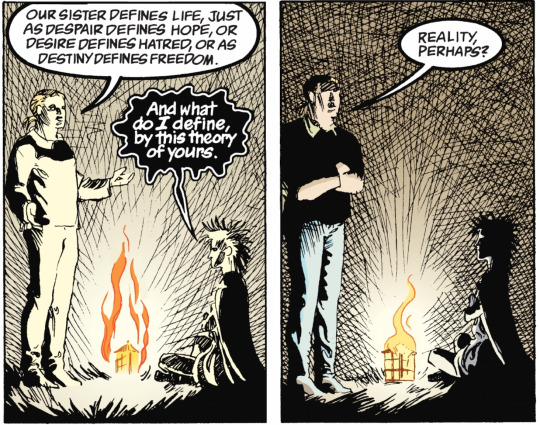
I read quite often, on here and elsewhere, that the Endless are also their opposite (@tickldpnk8 and I were just talking about an interesting thread on Reddit), so I just decided to speed-complete this one and get it out of my drafts before it dies in there (so not as much in-depth as originally planned, but sometimes, you just need to run with it 🤣).
The Endless are not their opposite. They define it. It’s a (in my mind, and I’d love to hear what you think) massive difference. And they define their opposite by their absence. If they truly were their opposite, it would give very different meaning to canon, and if we were to do so, a lot of it wouldn't make sense in my view.
Dream is not also reality. He defines it. He is, and forever will be, unreality. It is his absence that defines reality. A dream that becomes real isn't a dream anymore--it's real. That’s the main reason why pulling the ship into reality in Overture weakens him. If he were reality, he could have just snapped his fingers and make it happen. If he were reality, a lot of his problems wouldn't be... well, problems. The fact he is (a) D/dream is pretty much why all his relationships are doomed to fail. Dreams don't last. Dreams are forever strange and can't be truly known.
Delirium is not also sanity/clarity. She defines it through her absence. And when she pulls herself together like in Brief Lives, it hurts her "muchly". It is immeasurable pain for her because it is what she is not and cannot be for any extended period of time without hurting herself.
Despair is not also hope. She defines it via her absence. As long as you hope, you don’t despair. If Despair were also hope, we would not have 6 issues of Overture very clearly showing us who and what H/hope is. If Despair were also hope, we wouldn't need a little girl called Hope reach out her hand and touch Dream—he would have a sister who could do it. But the only time Despair shows up for him, so to speak, is after he killed Orpheus—make of that what you will.
Death is not also life. She defines it. The fact that she is there at your beginning does not mean she is the one who gives you life. She is there so you will remember her, always (and especially when she takes your hand), hence you will cherish life. She does not directly give life to immortals either--they are immortal because of her absence, because she withholds her gift, like she does with Orpheus and Hob (the Eblis-situation has nothing to do with anything in my mind and is linked to a funeral rite, and we are clearly told it is not something she usually does [“it’s been so long”], or is remotely comfortable doing. It is just that she is the Endless that is most life-adjacent and hence the one who will have to do it. Just like Dream is the most reality-adjacent and hence the one who has to pull the ship).
Destruction is not also creation. He defines it. He is what gives us the blank slate, he is what makes creation possible, he is what starts the cycle and ends it, but he is not creation himself. Keeping on destroying makes creation impossible. There needs to be a pause, a break for creation to come to fruition—the absence of destruction. If he were also creation, he wouldn't create so badly (to the extent that it is canonically turned into a running gag), and being around him and seeking him out wouldn't be an issue. But it is.
Desire is not also hatred (I’m still not sure if hatred is really the opposite of desire, but I’ll run with it because that’s what Gaiman chose). They define it via their absence. You know how Dream doesn’t want Desire in his life anymore after one major spat (whether he had reason to or overreacted isn’t really the issue). And what feelings are often left in the absence of Desire? And what does Desire feel and gets themselves tangled up in because they are pushed away and are basically not acknowledged/desired by their own sibling despite constantly trying to show him they are important (desire is not just a sexual thing, people, get your mind out of the gutter 🤣)? Yeah, about that one… There is definitely a different type of enmeshment here which sometimes seems a bit plot-hole-y to me, but I think that might be down to the fact that Desire is the chosen antagonist (and even that, only to a degree until they aren’t). Even so, it still makes sense.
Destiny is not also freedom. He is the absence of it. All paths lead to the same end. Or a decision you make was the decision you were going to make all along, and what looks like a different ending was the ending that would have happened anyway. And even if you choose, the book will start to make that choice destiny again. Only Delirium knows what’s not in his book, and in this universe, the only true freedom is not bound by any rules, logic or sanity…
1K notes
·
View notes






